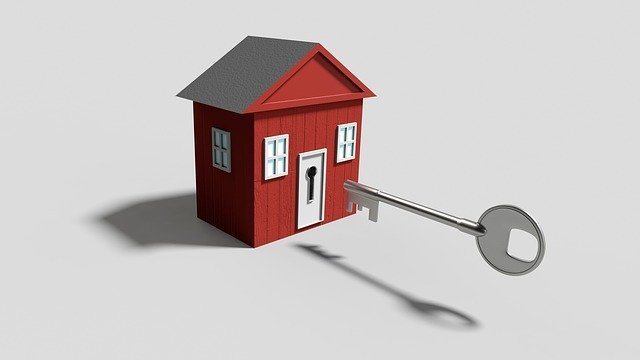In today’s fast-paced and online world, the rental market has expanded beyond traditional items like homes and cars to temporarily encompass virtually anything someone might need. Renting has become famous for individuals looking best things to rent to both save money and make money back, reduce waste, and access unique items without the commitment of ownership. Platforms like Fat Llama and Yoodlize have streamlined this process, making it simple for people to connect and find the best things to rent from one another.
Peer-to-peer rental platforms are revolutionizing the way we access and utilize possessions. From tools for home improvement projects to recreational vehicles for weekend getaways, the options are seemingly endless. The flexibility of renting things allows users to pursue their passions and achieve short-term goals without the burden of purchasing expensive items.
🌟 Top Picks for Online Earnings! 🌟
Dive into our handpicked selection of the best platforms to boost your online income. Trusted by thousands, these platforms are a must-try for anyone looking to make money online.
Turn your opinions into cash with one of the most reputable online survey platforms. Explore Survey Junkie
From watching videos to shopping online, Swagbucks rewards you for everyday online activities. Dive into Swagbucks
Get rewarded for shopping, taking surveys, and more. Check Out Lifepoints
Discover a curated list of remote and flexible jobs. Find Jobs on FlexJobs
As the sharing economy continues to grow, renters and owners can benefit from this innovative approach to resource allocation. Renting items conserves materials, reduces waste, and generates extra passive income for owners, fostering community connections and promoting sustainability. As we become increasingly aware of our consumer habits’ impact, the rental market presents an appealing alternative for those seeking to make more conscious choices.
Types of Rental Things

Tools and Equipment
Tools and equipment rental is typical for individuals to access costly, specialized, or infrequently used items. Some popular rental choices include:
- Power tools for home improvement projects (e.g., drills, saws)
- Garden equipment for landscaping tasks (e.g., lawn mowers, hedge trimmers)
- Heavy machinery for construction work (e.g., excavators, cranes)
Many local hardware stores, such as Home Depot or Lowes, offer tool and equipment rentals to make these items more accessible to their customers.
Rooms and Storage Renting Space
Renting rooms and storage spaces offers flexibility to people who need temporary accommodations or extra storage space, or spare room for their belongings. Some options include:
- Hotel rooms for short-term stays
- Apartments or single-family homes for longer-term rentals
- Storage unit facilities for securely storing items during moves or home renovations
Vehicles and Boats
Vehicles and boats can be rented for a range of purposes, such as business travel, leisure activities, or even transportation for special events. Some rental options include:
- Cars for business trips or vacations
- RVs and campers for road trips and camping adventures
- Bike rentals for city exploration
- Boats, Jet Skis, and watercraft for lake, river, or ocean adventures
Providers such as List N Ride offer bicycle rentals in Europe, while boat rentals are often available directly through marinas or specialized rental companies.
Party Supplies and Appliances
Renting party supplies and appliances can save time, extra money, and storage or extra space for special events or gatherings. Rental options can include:
- Tables, chairs, and tents for outdoor events
- Sound and lighting equipment for parties or concerts
- Party decorations and accessories, like centerpieces and linens for birthday parties and other parties
- Kitchen appliances, such as convection ovens or specialty cookware, for temporary use
Local party supply stores or online platforms can provide these rental services to make event space planning easier and more cost-effective.
See Related: Best Apps Where You Can Win Money
Renting Benefits

Renting can offer a few advantages over buying, particularly from a financial perspective.
Some of these benefits include the following:
No property taxes
Renters do not have to pay property taxes, which can significantly burden homeowners1. This can lead to considerable savings and extra income for individuals who things to rent rather than buy a home.
Lower upfront costs
Renting generally requires lower upfront costs than buying a home2. This means that renters can have more money for savings or other financial goals.
Flexibility
Renting increases flexibility when relocating for job opportunities, business, or personal reasons3. Selling money and renting a home can be a hassle and may result in a financial loss due to closing costs and real estate fees3.
See Related: 9 Ways to Get Paid to Ride a Bike
As renting a parking space continues to gain popularity, the sharing economy of parking spaces has expanded to provide additional benefits, such as:
More variety of rented items
Renting items instead of purchasing them outright can offer access to a wide variety of products, photography equipment, and services without the need to buy and store everything4 in your own business. This can be particularly useful for those living in smaller spaces or with limited own storage space.
Reduced waste
When individuals have things to rent out for money, items they may only need occasionally, less waste is produced4. This helps to conserve resources and reduce the environmental impact of consumption.
Earn EXTRA cash
Owning rental properties can be financially rewarding, as they can generate passive income through rent payments5. Property owners can also benefit and earn more money than through rental income from various tax advantages, such as personal finance, deducting insurance, mortgage interest, and maintenance costs5.
Renting can be more cost-effective and flexible for many individuals, providing immediate and long-term benefits. By renting out office space, or items in unused spaces or properties, people can save money, access a wide variety of products, and even have extra space with the potential to generate additional passive income.
Starting a Rental Business

Finding a Niche
When starting a rental business, one of the first steps is to find a niche. This could be anything from just a few ideas for renting things out your stuff to your stuff the best things to rent: bicycles, camping gear, baby gear, or power tools. Consider what items people in your local area may need temporarily, or explore online rental marketplaces for inspiration. Remember that focusing on a unique and in-demand niche is critical to success.
Setting Prices
Proper pricing is crucial for a rental business, as it helps generate revenue and attract customers. Research competitor pricing, assess local market conditions, and examine your costs to calculate the best product rental rates. Keeping your rental price competitive while still allowing for profits is crucial, so don’t hesitate to re-evaluate rental service fees and adjust them as necessary.
Promotion and Marketing
Marketing is crucial to the growth and success of any rental business. Develop a strong online and offline branding presence by creating a website, utilizing social media platforms, and implementing other promotional strategies such as SEO and email campaigns. You may also consider local partnerships and community events to improve your visibility.
Platform Examples Online Website, Social Media, SEO, Email Campaigns, Offline Flyers, Print Ads, Participating in Community Events
Managing Inventory and Orders
Adequate inventory and order management are critical for maintaining customer satisfaction and streamlining daily processes. Use a comprehensive inventory management system that tracks product availability, booking reservations, and rental returns. This will enable you to manage stock levels efficiently and minimize errors, leading to a more reliable and profitable bike rental business.
- Inventory Management Tips:
- You can use inventory management software.
- Regularly update stock levels.
- Track order statuses and returns
Focusing on these key areas will lay a strong foundation for your vacation rental business, paving the way to success and both passive income and rental income.
Platform Options for Renting

Fat Llama
Fat Llama is an online marketplace that allows users to rent items from others in their local community. The platform focuses on various products, including photography equipment, camera equipment, musical instruments, consumer electronics, vehicles, etc. Since the entire process takes place through the platform, it ensures a secure and easy rental experience for both the renter and the owner. Fat Llama also offers a comprehensive insurance policy on all items rented, providing peace of mind to both parties.
Peer-to-Peer Platforms
Along with Fat Llama, other peer-to-peer rental platforms offer a range of types of items for things to be and things to rent so you can rent them without renting out your stuff. Some of these include:
Yoodlize
This platform focuses on connecting people with what they need, such as recreational vehicles, outdoor gear, and electronics. Users can earn cash by renting out their car seats and belongings on the platform.
Sharetribe
Sharetribe is a platform that helps users build their own customized rental marketplace. It offers rental marketplace features and pricing plans starting at $79 per monthly fee.
List N Ride
A leading European bike parking space rental platform, users can earn extra money by renting out parking spaces for their bicycles.
Spinlister
Spinlister is another platform that enables users to make extra money by renting out bikes, snowboards, surfboards, and more. It also provides insurance coverage up to $5,000 on rented items.
KitSplit
This platform focuses on renting camera gear, allowing owners to earn income from their camera equipment too. Items like a Canon EF lens can be rented out for $18/day while making money from renting a more high-end option like the Arri Amira 4k Cinema Package. Can the average owner earn up to $979/day?
These platforms provide users with multiple options for renting items, depending on their specific needs and the type of items they want to rent or offer. Each platform has its features, its own pricing structure, and its own liability insurance coverage, too, making it crucial for users to research and choose the right platform for their own rental business needs.
See Related: Epic Ways to Get Free Cryptocurrency
Renting Tips for Students
Finding a suitable rental property can be challenging for college students. It’s crucial to balance affordability, convenience, and comfort. Here are some crucial tips to help students find a great rental property:
Location
Consider proximity to the university campus and other crucial amenities in a major city, like public transport, grocery stores, and restaurants. A shorter commute can save you time making money, little effort, and more money and stress.
Budget
Set a maximum monthly rent that you can afford. Consider additional expenses, such renting the things you can rent, such as utilities, Wi-Fi, and transportation costs. Listing prices may be negotiable, so discuss your budget with potential landlords.
Safety and Security
Research the neighborhood’s crime rates and ensure the rental property has adequate security measures, such as locks on doors and windows. Could you speak to current tenants or neighbors to understand how safe the area is?
Roommates
Consider sharing a rental property with roommates to save on rent and utility costs. Look for fellow students with compatible lifestyles and preferences. Create an agreement outlining chores, rent payments, and other responsibilities.
Inspect the Property
Visit the rental property before signing a lease to check its condition. Look for signs of water damage, pests, and poor maintenance. Take photos to document any pre-existing issues and negotiate with the landlord to address them.
Lease Agreement
Please read and understand your lease agreement carefully, which outlines your legal responsibilities as a tenant. Please ensure that the lease terms align with your academic year and that you know of any early termination or subletting penalties.
Know Your Rights
Familiarize yourself with local landlord-tenant laws to protect yourself from potential disputes. Be aware of your rights and responsibilities as a tenant, such as timely rent payments and property maintenance.
By following these tips, students can find a rental property that caters to their needs while minimizing potential issues. Please keep a clear line of communication with your landlord and ask questions to ensure you’re making informed decisions about rental prices.
Leases and Security Deposits

A lease is a legally binding agreement between a landlord and a tenant outlining the terms and conditions of renting an office space, spare room, or property. One crucial aspect of most lease agreements is the security deposit.
A security deposit is a fixed amount paid to a property owner or manager, ensuring the tenant pays rent and abides by the lease terms. Typically based on the monthly rent, for a few hundred dollars, a security deposit equals one or two months’ rent. It serves as a form of protection for the landlord should the tenant cause damage to the property or break the lease terms to rent out for money.
Before signing a lease, prospective renters should:
- Please look over the lease terms, responsibilities, and obligations thoroughly.
- Please feel free to discuss any concerns or specific needs with the landlord.
- Inspect the property with the landlord and take photos of the current condition.
It’s crucial to note that security deposits are usually refundable, meaning that tenants can receive the total or partial amount of making money back when the lease ends. But, landlords can keep a portion or all of the deposit to cover specific expenses, such as property damage or unpaid rent.
Different states have varying laws and regulations regarding returning money and renting a security deposit. In some cases, landlords have a deadline for returning the deposit amount; in others, they should provide an itemized list of deductions.
To make extra money from rental income and avoid disputes and misunderstandings regarding security deposits, both landlords and tenants should:
- Please take a look at their respective rights and responsibilities.
- I want you to please maintain a transparent and open line of communication.
- Keep records of payments, property inspections, and any related correspondence.
Ultimately, leases and security deposits are crucial in the landlord-tenant relationship. As such, both parties should familiarize themselves with their local laws, house rules, and regulations to ensure a fair and equitable rental experience.
Maintenance and Repairs
Rental property maintenance and repairs are crucial for landlords and tenants to ensure the property stays in good condition. Landlords are responsible for providing habitable living spaces, while tenants must keep the property clean and report any issues.
Landlord Responsibilities
A landlord’s primary duty is to maintain a habitable living environment for the tenants. This includes:
- Conducting regular maintenance checks
- Making necessary repairs
- Addressing mold and water damage
- Ensuring working smoke detectors
Tenant Responsibilities
Tenants must also contribute to the upkeep of the rental property. Their responsibilities include:
- Regular cleaning
- Reporting any maintenance or repair issues to the landlord promptly
- Avoiding damage to the property through negligence or misuse
- Cooperating with the landlord in attending to repair work
Common Repairs and Maintenance Issues
Some of the most common issues that may arise in a rental property include:
Plumbing problems
Leaky faucets or pipes, clogged drains, and other plumbing issues should be addressed promptly by the landlord.
Electrical issues
Faulty wiring, non-functioning outlets, and flickering lights are the landlord’s responsibility to fix.
Pest or insect infestations
The landlord should make money to deal with these unless the infestation is due to tenant negligence.
HVAC system issues
The landlord is responsible for maintaining and repairing heating and cooling systems.
Structural issues
The landlord should address structural defects like foundation cracks or leaky roofs.
Handling Repairs and Maintenance Costs
The cost of repairs and maintenance is typically the landlord’s responsibility. But, if a tenant causes damage or neglects the property, they may be required to make money back to cover the cost of repairs. This could involve a deduction from the security deposit or a separate payment, depending on the situation.
In summary, landlords and tenants have their part to play in maintaining and repairing rental properties. They can ensure a safe and comfortable living environment best rental business by fulfilling their respective responsibilities.
See Related: Best Part-Time Businesses to Start in 2023 & Make Money
Safety and Security

Ensuring the safety and security of a rental property is crucial for both landlords and tenants. Landlords are legally responsible for protecting their tenants by providing necessary security measures such as deadbolt locks on doors, lighting, and window locks. Regular property inspections and maintenance can also help ensure a safe living environment.
Tenants can contribute their own price to securing rental property by being aware of their surroundings and taking preventive measures. Here are a few sites with some tips for renters to ensure safety and security in rental requests:
Know your neighbors
Establishing a good relationship with your neighbors can be beneficial in keeping an eye on each other’s properties and reporting any suspicious activities. Could you communicate with your neighbors and join or create a neighborhood watch program?
Secure your doors and windows.
Always lock your doors and windows when leaving your apartment, even temporarily. Could you ensure your locks are functioning correctly, and if possible, install a deadbolt or peephole camera for added security?
Please light up your surroundings.
Please ensure the outside of the property and common areas are well-lit to deter potential intruders and create safer paths for dog owners and tenants to navigate at night.
Swimming pool safety
If the rental property has a swimming pool, it should be appropriately maintained and secured with a fence or barrier to prevent unauthorized access. Tenants should follow all safety guidelines, such as not swimming alone and obeying posted pool rules.
Finally, being told about your rights as a tenant can help the things you can rent out for profit and identify any risk involved in potential landlord trespassing or other concerns about things you can rent out. You can familiarize yourself with state and local statutes and stay vigilant to maintain a safe and secure living environment in your garden, unused space, or rental property.
Footnotes
- Investopedia, “10 Reasons Why Renting Could Be Better Than Buying”. ↩
- Better Money Habits, “What are Benefits of Renting vs. Owning a Home.” ↩
- Apartment Guide, “12 Advantages Of Renting An Apartment Over Buying A House”. ↩ ↩2
- Forbes, “The Future Of Stuff Is Shared Or Rented.” ↩ ↩2
- Investopedia, “Rental Properties: Pros and Cons.” ↩ ↩2
Related Resources:
